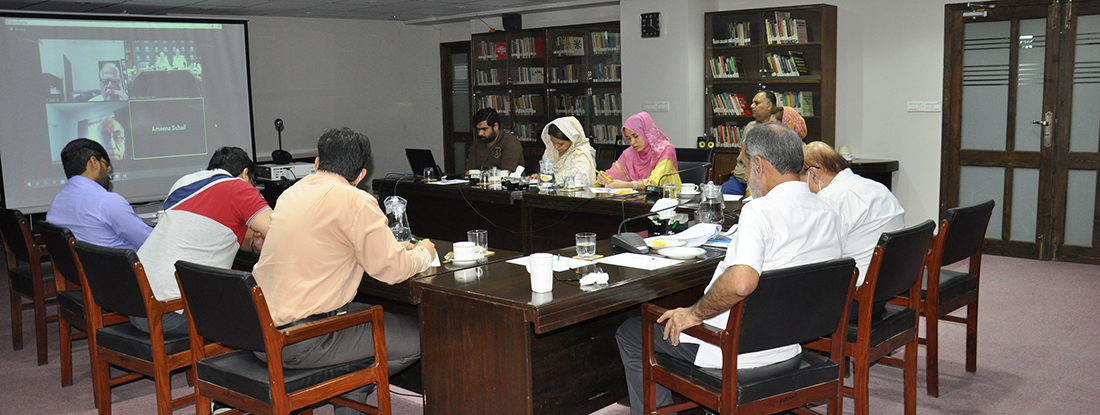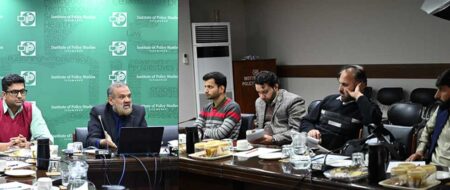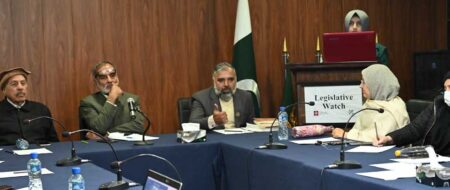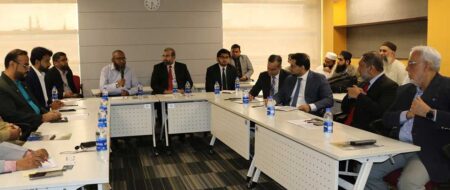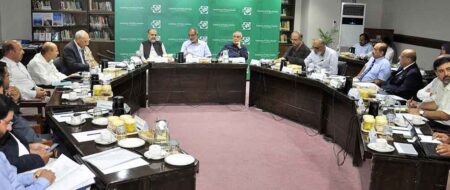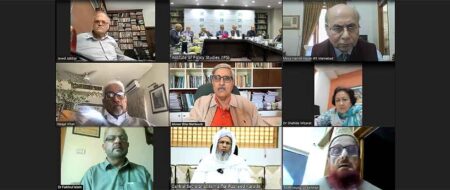Removing roadblocks to the growth of clean energy the only way forward for Pakistan’s environmental security
The Global Climate Risk Index has placed Pakistan on the fifth spot on the list of countries most vulnerable to climate change in its annual report for 2020. The use of fossil fuels which includes coal, gas and fuel oil on the other hand is detrimental for the country’s environmental future. It is thus imperative for the country to move to renewable energy sooner rather than later, wherein a failure in doing so will further aggravate the existing food, water and energy security related threats.
These concerns were
raised in the first yearly meeting of IPS’ Steering Committee on Energy, Water
and Climate Change, which was organized by Institute of Policy Studies (IPS)
Islamabad on September 30, 2020 for reviewing outgoing year’s progress as well
as planned projects for the forthcoming year 2020-21. The meeting was chaired
by Mirza Hamid Hasan, former secretary, Water and Power, and addressed by
Ashfaq Mahmood, former secretary, Water and Power, Syed Akhtar Ali, former
member energy, Planning Commission of Pakistan and author of many books on
energy, Ameena Sohail, Sr IPS associate and energy lawyer, Khalid Rahman,
executive president IPS, Naufil Shahrukh, GM-Operations IPS, and the
Institute’s energy and water program’s team members Naila Saleh, Sarah and Wali
Farooqi.
Terming the use of
clean energy as the only way forward for ensuring an environmentally secured
future for Pakistan, it was stressed that roadblocks in the way of wider use of
clean energy should be addressed timely since it is not only the most
efficient, feasible, reliable and safest mean of energy generation, but
simultaneously will contribute to reducing reliance on imported fuels and
harnessing the immense indigenous renewable energy resources available in
Pakistan. In parallel, Pakistan is already 5th most
vulnerable country to climate change and could not afford to continue the
existing trajectory. In this regard, the excessive rains in many parts of the
country including Karachi were only a recent highlight of the alarming threats
posed to the country—emphasizing urgent need for action to address the issue on
priority basis.
It was pointed out in
the meeting that the reason for not benefitting from this immense renewable
energy potential in Pakistan lies in flexibility constraints and lack of
commitment on behalf of relevant authorities, who neither had technical
expertise nor the intent to make this shift. Further, it is more convenient for
the grid operators to manage the grid dominated by base load power plants
regardless of its detrimental impacts on environment, and hence they intend to
continue the business as usual.
It was also pointed
by energy experts that the on-ground steps currently taken by the government
were not only contradictory to the targets set in the 2019 policy for
‘Alternative and Renewable Energy’, but also poorly contrasted to the global
and regional renewable energy advancement. For instance, the coal power
plants installed in Sahiwal and Hub, and the other two being installed in
Tharparkar and Gwadar were a direct contradiction of the mentioned policy. The
speakers said that an argument is made frequently that when Pakistan has such
huge reservoirs of coal at its disposal, why should it not be utilizing it to
generate energy. The contrasting reality however remains that Pakistan’s
reliance on coal fired power plants remain skewed toward imported fuels and
coal, the cost of which is nearly at par with IPPs and has significantly
contributed to the swelling of circular debt—now reaching trillions from
billions.
The speakers also
rued that there was no planning or proper data existent to address the circular
debt issue. The regulators in the country were not playing their due role
properly and many concerned departments were even reluctant to share the data
with each other. The result of all this is that the claiming creditors demand
unjustifiable bills, which are then accepted by the government without any
analysis or forensic audit.
The speakers also
highlighted that the generation capacity in the country has already surpassed
the country’s needs—outpacing the transmission resulting in unserved energy and
idled generation capacity. The state institutions like NTDC, according to the
speakers, did not have enough research resources indigenously to assess the
generation or distribution capacity of the country. It did on the other hand
outsource the task to another institution in 2018 and that study has been
completed recently, the work however took so long in its completion that the
indicators and scenario used in preparing that report has become outdated in this
time.
The experts stressed
that the issues faced by Pakistan in moving towards renewable resources were
not new as similar issues and obstacles were faced earlier by European
countries as well. They however were finally able to identify best practices
after making many mistakes and overcoming their hindrances. The need for
Pakistan now, they maintained, was to learn from those experiences and best
practices instead of trying to reinvent the wheel.
The participants were
notified in the end that It was in line with these notions that IPS has already
started seeking collaboration with renown institutions like Agora Energiewende
based in Germany. These potential
collaborations—build on a combination of established expertise in the renewable
energy transition and with building partnerships with other think tanks working
in emerging economies—will aid in mobilizing and enabling an environment for
sustainable energy transition in the context of Pakistan.


